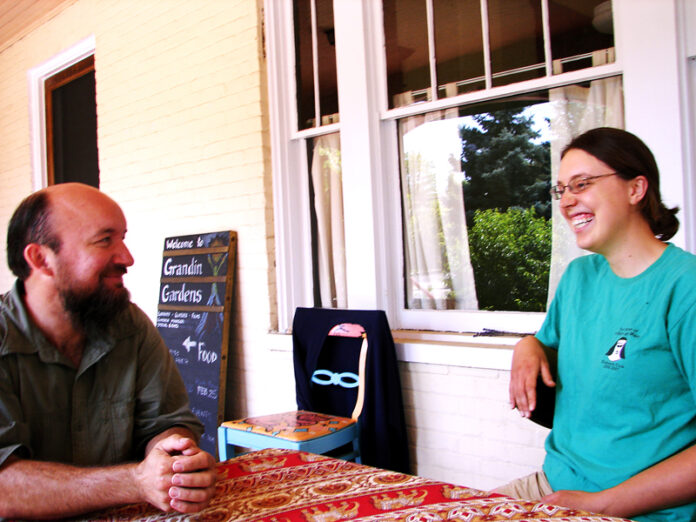
Most people don’t know the definition of “Permaculture,” but area activist Ron McCorkle believes that we need it more than we know. He has formed the Roanoke Permaculture Education Guild to help his home city become more sustainable in its culture. He is offering classes locally to share his knowledge.
Ted Butchart ND, founding board member of the Blue Ridge Permaculture Institute has been teaching permaculture for 25 years. He explains: “Permaculture can be thought of as applied ecology. We study how nature works in a healthy ecosystem, and then we try to replicate that in human designed systems. A healthy ecosystem becomes more and more complex over time, making it more resilient to disruption by weather change, such as drought or flood or changes in food supply. All nutrients are cycled and recycled within the ecosystem.”
McCorkle defines permaculture as a lifestyle that uses material things appropriately and minimally in a regenerative way. Both Butchart and McCorkle view permaculture as a whole system approach. It impacts people’s relationships, health, physical surroundings and even spirituality. McCorkle states “it is not our normal way of living, but it is our “natural” way of living.” He measures spiritual growth by the evidence of people caring for and about others.
When asked, he agrees that the Native American lifestyle was a permaculture lifestyle, as are most indigenous cultures from ancient times. Butchart explains “Human designed systems tend to be simplistic, require massive inputs of materials and energy, and usually require a LOT of human work to maintain them. They want to fall apart. Permaculture is a design system that creates systems which do not require intensive inputs and which require less and less human labor as the years go on. The system is set up in such a way that it becomes more and more complex, and more and more self-sustaining.”
McCorkle will be furthering his education to allow him to become a permaculture educator. His goal is to then develop ten other certified educators in the area over the next five years. He lives in the city on 1/10 acre and through the use of his own land and various community garden sites grows about 80% of his own food.
He currently provides soil testing and “home-grown” compost for the people of Roanoke. Most of his personal travel is accomplished by bicycle. McCorkle views Roanoke as a “transition town,” a place where living a permaculture lifestyle is entirely doable, and cites the greenways and the various neighborhoods of the city as a great example.
He actively pursues a lifestyle where the output from one element of his life is the input for another; for example, he captures rainwater to water his gardens. He proudly states that he never uses city water to raise his food, and he can teach others how to do the same. McCorkle has coined the phrase “urbiculture” to define this lifestyle as executed in the middle of the city.
As with all lifestyle changes, he acknowledges that they don’t happen overnight, but small changes in lifestyle can be meaningful. He has devoted himself to the task of being an example and providing resources for both the people and City of Roanoke.
To reach Ron McCorkle and register for classes or obtain services or compost, call 540-982-8289 or email [email protected]
By Christine Slade [email protected]